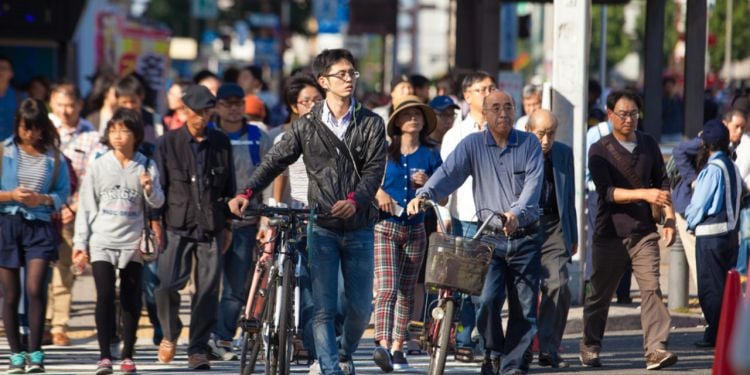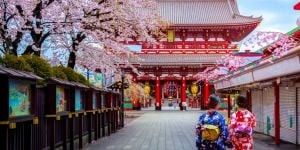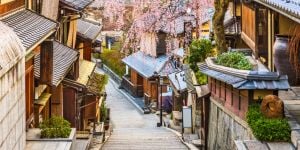
If you plan to work in Japan in general and Tokyo in particular, it is essential to understand local cultural nuances. The Japanese working culture is known for long hours and strong commitment, but now, more and more businesses prioritize employees' well-being and career advancement opportunities. Working in Tokyo: How to survive and thrive? This article gives you helpful insights into Tokyo's traditional and modern practices and customs at work.
Traditional work practices in Japan
Japan is known for having many workaholics. Work–life balance is not considered very good in Japan. The traditional work culture in Japan focuses on being extremely dedicated to work. Although there have been some improvements in work conditions, Japan remains a country known for hard work.
Below are some key aspects of traditional Japanese work practices:
- Teamwork is valued over individual achievements;
- Strict hierarchy and ranking system;
- Employees work long hours;
- Formal work setting;
- Strong emphasis on quality and attention to detail;
- Process-driven approach;
- Decision-making is slow, with frequent meetings;
- Paperwork is important;
- Communication is often indirect;
- Politeness and heartfelt service are essential;
- Business cards are a requirement.
Corporate culture and group cohesion in Japan
The work culture in Japan involves a lot of order and hierarchy. Depending on your rank, you are called – director, head, leader, manager, etc., as a sign of respect. Discretion and humility are the keywords. The same respect prevails among colleagues prevails the same respect. The work is done in small groups and in coordination. In any situation, we seek to preserve "wa", the harmony.
Officially, the Japanese work 40 hours a week — eight consecutive hours a day. Some sectors, such as construction, medicine, and catering, benefit from adjusting this legal framework. However, the framework itself has been widely challenged in practice. Few employees limit themselves to 40 hours per week. In practice, it is more like 50 hours, on average. Japan is one of the countries with the highest number of overtime hours globally. Hours are not always paid for low and counterproductive results.
The government is trying to propose an alternative, as these overtime hours do not boost productivity. Rather than "working more", in Japan, we "stay more". After the regular working hours, it is common to stay in the office. If you leave first, it breaks the harmony of the group, thus showing individualism and selfishness. If the manager hasn't left yet, the employee must stay. It is rather overtime hours of attendance than overtime itself.
A new trend is slowly emerging. To fight against the culture of staying at work after regular working hours, some managers advise their employees to return home after work, even if it means skipping the nomikai, the outing between colleagues.
It is a practice that is firmly embedded in the company's culture. The nomikai helps to strengthen ties between colleagues, managers, and employees. It is a get-together often held in a bar to consume alcoholic beverages. Barriers come down, and people feel free to talk. If you say something wrong, we can always blame it on alcohol. The next day, these will be forgotten, and everyone will go back to work with plenty of supplements against the hangover.
Young recruits learn a few untold things when they do their first nomikai. However, specific codes even apply to the nomikai. At the bar, you cannot sit anywhere you want. The hierarchy must be respected – which means that the leader will have the best seat. Then, depending on the importance of their function, the deputy heads follow. Young trainees find themselves at the end of the table (near the front door, the passage area etc., which is considered the worst place).
Does the nomikai favor integration, or does it add stress? Some get the feeling that they are still working after work, so it becomes a constraint that looks difficult to escape; otherwise, you could break the wa or the harmony of the group.
Death at work – Karoshi in Japan
Death from overwork refers to the illness and stress caused by excessive work, which can lead to various symptoms such as stroke, heart disease, severe asthma attacks, or even depression, leading to suicide.
The term "karoshi" was coined by medical scientists in the late 1970s but gained popularity in Japanese society around 30 years ago. The official number of deaths recognized by the Japanese government has averaged around 200 per year in the past decade, but this is just the surface. Many others survive but require prolonged treatment of severe illnesses.
Reforms in Japan's working culture
To prevent death at work, in June 2014, the Karoshi Death Prevention Act was passed by the National Diet. This act was a response to the increasing number of deaths caused by overwork and was strongly supported by the families of the victims. The law emphasizes that it is the duty of the state to prevent death from overwork.
Additionally, in October 2016, the government published its first White Paper on Deaths from Overwork.
The "Work Style Reform Realization Council (働き方改革実現会議)" was established in September 2016. In March 2017, it provided specific directions in nine areas, such as "correcting long working hours" and "creating a flexible work environment".
The "Work Style Reform Action Plan" was then compiled. In June 2018, the "Work Style Reform Bill" was passed, and the gradual implementation of the "Work Style Reform Related Act" began in April 2019. This work style reform is a government-led national initiative that poses a significant challenge for companies, employees, and society as a whole.
The Work Style Reform Related Act led to 11 significant changes, such as setting limits on overtime work, implementing a work interval system, granting 5 days of annual paid leave, increasing premium pay for overtime, ensuring a clear understanding of working hours, extending Flextime settlement period, introducing professional system, enhancing industrial health functions, prohibiting unfair treatment differences, improving worker treatment explanation, and providing administrative advice and dispute resolution options.
Minimum wages and salary in Tokyo
The salary structure in Tokyo, just like in Japan nationwide, typically includes a monthly salary and bonuses. Before the employee receives their take-home pay, deductions for social insurance, taxes, and other expenses are subtracted from the total amount.
Bonuses are usually given twice a year, for example, in June and December. The bonus amount can vary significantly based on the employee's performance and the company's overall performance. It's worth noting that some years may not include any bonus at all, while in other years, employees may receive a bonus equivalent to four months' worth of wages.
Tokyo's minimum wage in 2023 stood at 1,113 yen per hour.
Business attire in Tokyo
The dress code for work can differ significantly based on the industry and type of job you have. While a suit with a jacket is necessary for both men and women during most interviews or client meetings, IT or design-related companies may have a more relaxed dress code. Some employers may even allow employees to skip the jacket and tie in the summer.
The gentle revolution: the ikigai
Compared to the dominant corporate culture, ikigai offers to refocus on oneself. This word means "well-being". It is the “leaf of life” for everyone. The origin of ikigai? It comes from Okinawa, the island known worldwide for its many centenarians. We often talk about their diet. We are now looking at their philosophy of life: will it be the recipe for happiness in the company?
First of all, talking about ikigai is talking about taking a break and unplugging. It's a revolution in a system where work value regularises relationships. The ikigai changes the target: the company is no longer the one that decides and imposes. The human being is placed at the heart of the exchanges.
The main question becomes: why get up every morning? What motivates the individual?
The ikigai echoes some of the exercises proposed in the skills assessment, where you establish a list of what you like and dislike. With this Okinawa method, you go back to the roots, learning about yourself, understanding what you want, what you can accept, and what is good for you.
Create a pleasant working environment. Propose real interactions, no longer based on nomikai, but on constructive exchanges, where everyone fully uses their right of expression. Learn to let go. Going away for the weekend. Take a vacation. Disseminating these new practices for all companies is the challenge of ikigai.
Useful link:
Work style reform in Japan (Japanese)
We do our best to provide accurate and up to date information. However, if you have noticed any inaccuracies in this article, please let us know in the comments section below.








